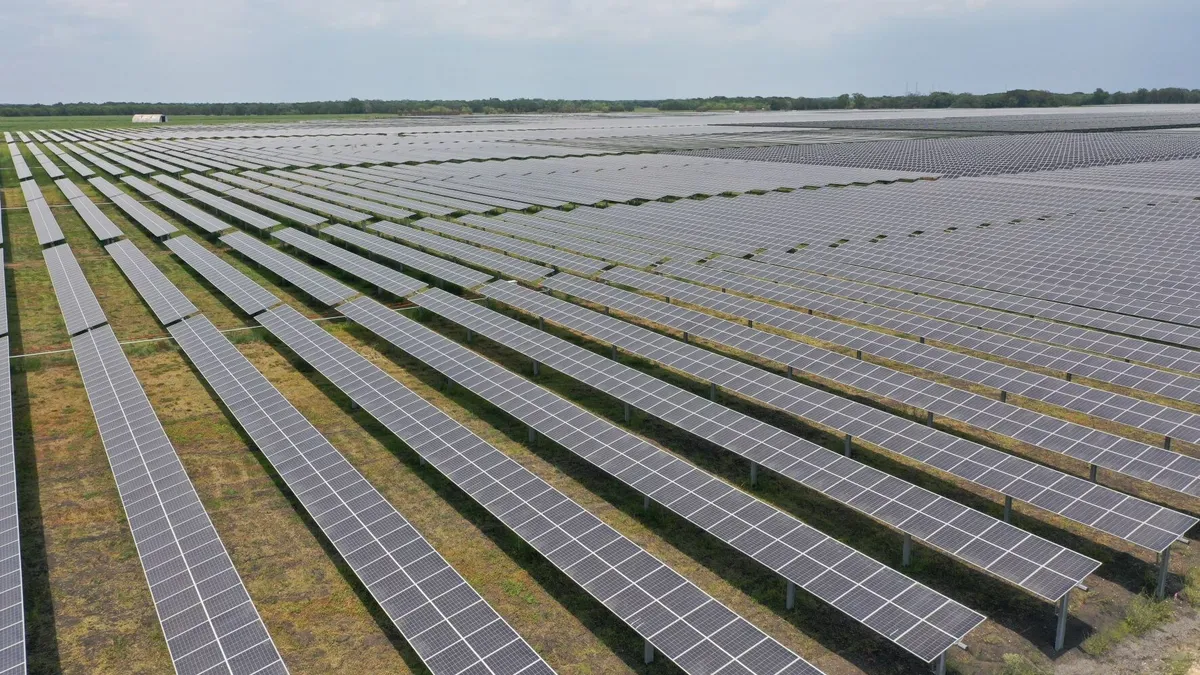Dive Brief:
- A series of disruptions to inverter-based resources has led the North American Electric Reliability Corp. to issue an alert and recommendations for solar generators connected to the bulk electric system, or BES.
- “These resources have exhibited systemic performance issues that could lead to potential widespread outages if they persist,” NERC said in the Tuesday alert distributed to generator owners of BES solar PV resources. Resource owners must acknowledge the alert by March 21 and report back to NERC on their response by June 30.
- NERC has tracked a growing list of instances where inverter-based resources tripped offline or reduced output in response to grid disturbances. Its alert recommends solar generation owners coordinate with inverter manufacturers to ensure that, among other things, AC voltage protection settings are expanded “as widely as possible within the inverter equipment capability.”
Dive Insight:
While inverter-based resources include solar, wind and energy storage, NERC’s alert this week is specific to solar installations.
The alert followed NERC’s analysis of several large-scale disturbances with widespread loss of inverter-based resources that resulted in “abnormal performance” across several BES solar PV generating resources, NERC said. The recommendations may also be applicable to battery energy storage systems connected to the BES but do “not pertain to wind resources as the observed performance issues are different,” NERC said.
As the penetration of BES-connected inverter-based resources increases, “it is paramount that any performance deficiencies with existing and future generating resources be addressed in an effective and efficient manner,” NERC said.
“The inverter tripping challenge is really one of the most risky issues we have to deal with as an industry in order to ensure we can reliably interconnect the nearly 500 GW of solar we see coming online in the next 10 years,” NERC Director of Reliability Assessment and Performance Analysis John Moura said in May 2022.
NERC specifically pointed to a pair of disturbances in Odessa, Texas, in 2021 and 2022 that “resulted in abnormal performance.”
An analysis of the 2022 event concluded, “unexpected tripping of synchronous generation in addition to the abnormal reduction of power from many solar PV facilities poses a significant risk to [bulk power system] reliability.”
NERC’s recommendations call for ensuring protection settings at collector systems, and substation protection settings at generation facilties are “based on equipment ratings of the equipment they are intended to protect” and “eliminate or minimize the use of instantaneous voltage tripping.”
The recommendations also call for elimination or minimization of the use of instantaneous frequency
tripping. “Frequency protection should operate on a frequency measurement over a time window,” NERC said.















